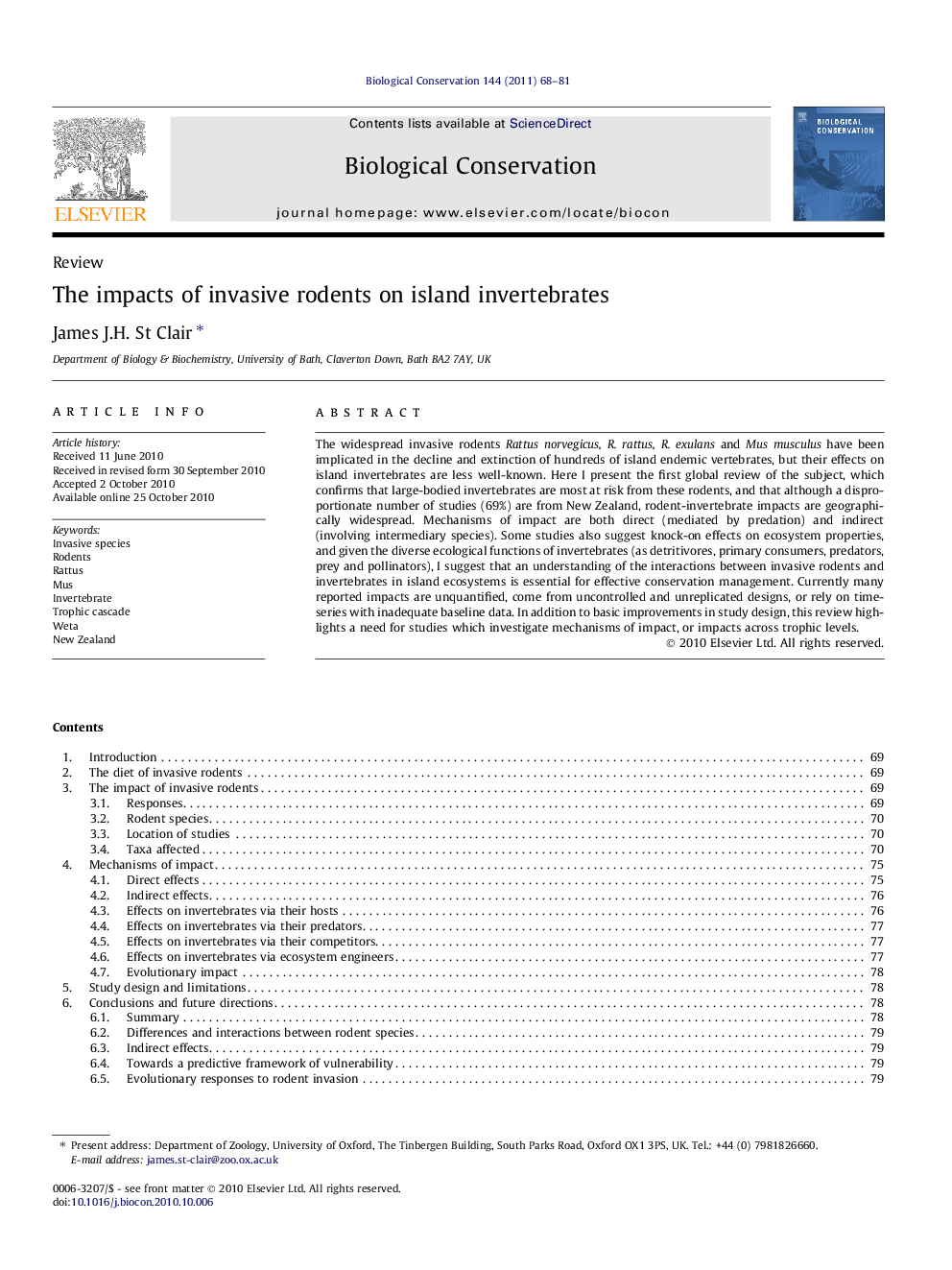| Article ID | Journal | Published Year | Pages | File Type |
|---|---|---|---|---|
| 4385664 | Biological Conservation | 2011 | 14 Pages |
The widespread invasive rodents Rattus norvegicus, R. rattus, R. exulans and Mus musculus have been implicated in the decline and extinction of hundreds of island endemic vertebrates, but their effects on island invertebrates are less well-known. Here I present the first global review of the subject, which confirms that large-bodied invertebrates are most at risk from these rodents, and that although a disproportionate number of studies (69%) are from New Zealand, rodent-invertebrate impacts are geographically widespread. Mechanisms of impact are both direct (mediated by predation) and indirect (involving intermediary species). Some studies also suggest knock-on effects on ecosystem properties, and given the diverse ecological functions of invertebrates (as detritivores, primary consumers, predators, prey and pollinators), I suggest that an understanding of the interactions between invasive rodents and invertebrates in island ecosystems is essential for effective conservation management. Currently many reported impacts are unquantified, come from uncontrolled and unreplicated designs, or rely on time-series with inadequate baseline data. In addition to basic improvements in study design, this review highlights a need for studies which investigate mechanisms of impact, or impacts across trophic levels.
